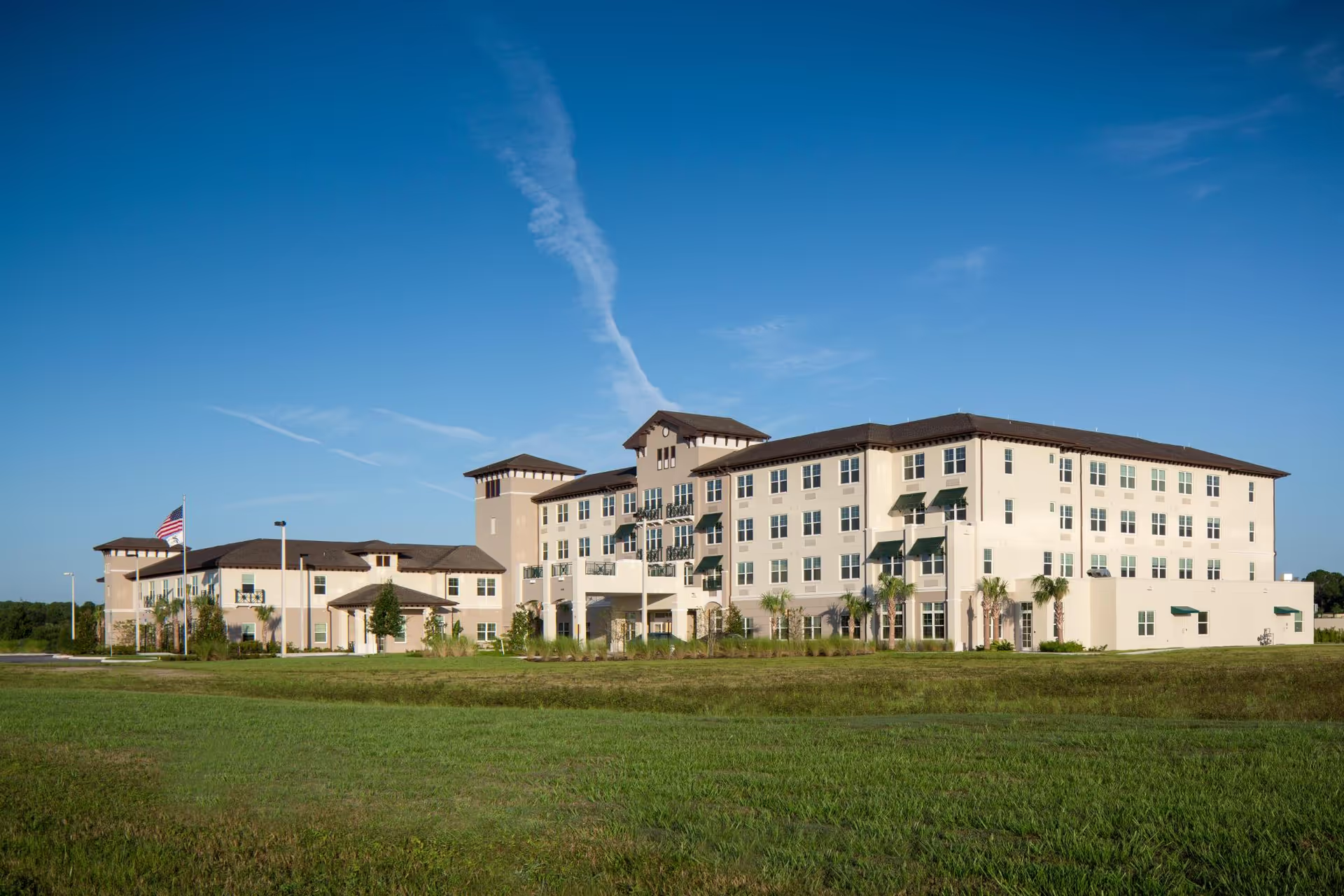Overall sentiment in the reviews for Serenades at The Villages is strongly polarized: a substantial portion of reviewers praise the community for its physical environment, dementia-focused design, warm and compassionate staff, and strong activities and dining programs, while a significant minority report serious and troubling lapses in care, management, communication, and clinical oversight. The balance of feedback shows a community with many real strengths—especially in facility design and lifestyle programming—but also recurring operational problems that materially affect resident safety and family confidence for some households.
Facilities and design are consistently highlighted as major positives. Numerous reviewers described the building as beautiful, bright, and well-maintained, with a well-kept courtyard, garden access, neighborhood-style (Adagio and other wings) layout, and dementia-friendly features (one-level layouts, secure courtyards, cameras, separate dining areas by wing). Private rooms, ample closet space, wheelchair-accessible showers, and comfortable family-style living areas were repeatedly praised. The physical environment—clean, home-like, and nicely furnished—comes up as one of the facility’s strongest selling points in many accounts.
Dining and programming receive wide acclaim from many families. Homemade on-site meals, enthusiastic comments about menu quality, and specific praise for food-service staff (including Thanksgiving dinner or other special meals) recur across reviews. The Activities/Lifestyle department is often singled out as excellent, with mentions of an outstanding Activities Director, a varied calendar (music, arts, karaoke, dancing, manicurist, external presenters), and programs that engage residents. Multiple reviewers said residents made friends, participated daily, and enjoyed outings and on-site entertainment—factors that reinforce the community’s dementia-care focus.
Staffing and caregiving elicit the most mixed and consequential feedback. Many reviewers report compassionate, attentive, and highly skilled caregivers, naming individuals who went “above and beyond” and crediting staff for tangible improvements in residents’ mobility, speech, or mood. At the same time, a significant number of reviews document chronic understaffing, high turnover, and shifts in quality after key directors left. The result described by several families is an inconsistent caregiving experience: periods of impressive, personalized care contrasted with times when aide-to-resident ratios were inadequate, aides were overworked, or clinical staff changes led to errors or omissions.
Clinical and safety concerns are the most serious recurring themes. Multiple reviewers reported medication errors or meds not being administered as prescribed, failures to turn immobile residents (risking pressure injuries), incidents in which residents were left in soiled conditions, and other neglect-type complaints. Several accounts allege severe outcomes (bedsores, falls, or other declines) attributed to staffing or oversight failures. There are also isolated but alarming allegations of suspicious incidents and potential misconduct (including a reported suspicious death and concerns about POA fraud), which, although not the norm across reviews, contributed to a high level of distrust for some families. These types of reports underscore an important pattern: the community’s culture and oversight appear to vary considerably depending on leadership, staffing levels, and specific teams on duty.
Management, communication, and administration are another area of divergence. Many reviews praise hands-on, responsive management and staff who return calls, coordinate care, and provide clear admissions/billing guidance. Conversely, others report poor communication, unreturned calls, inconsistent or misleading information, billing disputes, and difficulty reaching nursing leadership. Several reviewers trace declines in service to leadership turnover or to the departure of a key director; others note that promises made during tours or by the sales team were not consistently kept. Financial concerns are common: the community is described by some as competitively priced or worth the cost, while others cite rising rates, unaffordability, and lack of Medicaid acceptance as serious problems.
Patterns that stand out: (1) many respondents have excellent initial impressions—particularly during tours and early stays—but some families report a decline in care quality over time, especially after leadership changes; (2) the Activities and dining programs are consistently a strength and key differentiator; (3) experiences are highly staff-dependent—positive outcomes are tied to specific caregivers and managers, while negative outcomes often follow staffing shortages or turnover; and (4) the most serious complaints center on clinical safety (medication management, neglect, end-of-life care), which are non-negotiable issues for families seeking long-term security for vulnerable loved ones.
What the pattern suggests for prospective families: an on-site visit is essential, and follow-up questions should probe current staffing ratios (including RN coverage vs med techs), turnover rates, clinical oversight protocols (med administration, turning schedules, infection control), recent incidents and how they were handled, the community’s policy on Medicaid and refunds, and how they support remote visitation. Ask to speak with current family members, request recent quality/incident reports, and observe multiple neighborhoods at different times of day to gauge consistency in care and activity engagement.
In short, Serenades at The Villages frequently delivers a high-quality, dementia-focused environment with strong activities programming and many caring staff members. However, families should weigh those strengths against recurring and sometimes severe reports of understaffing, inconsistent management, clinical errors, and serious incidents. Because experiences appear to vary widely depending on staffing and leadership at given times, careful due diligence—focused on clinical oversight, staffing stability, and recent complaint resolution—is advisable before placement.







